World of Goo 2 was quite a surprise reveal late last year and now it actually has a released date, although it won't be on Steam.
The developers today announced it will be on the Nintendo Switch, Epic Store and a DRM-free version direct from their own website on May 23rd. Their website will be the only place to get the Linux version. Presumably, like most Epic exclusive deals, it will eventually arrive on Steam.
You can see the original trailer below:
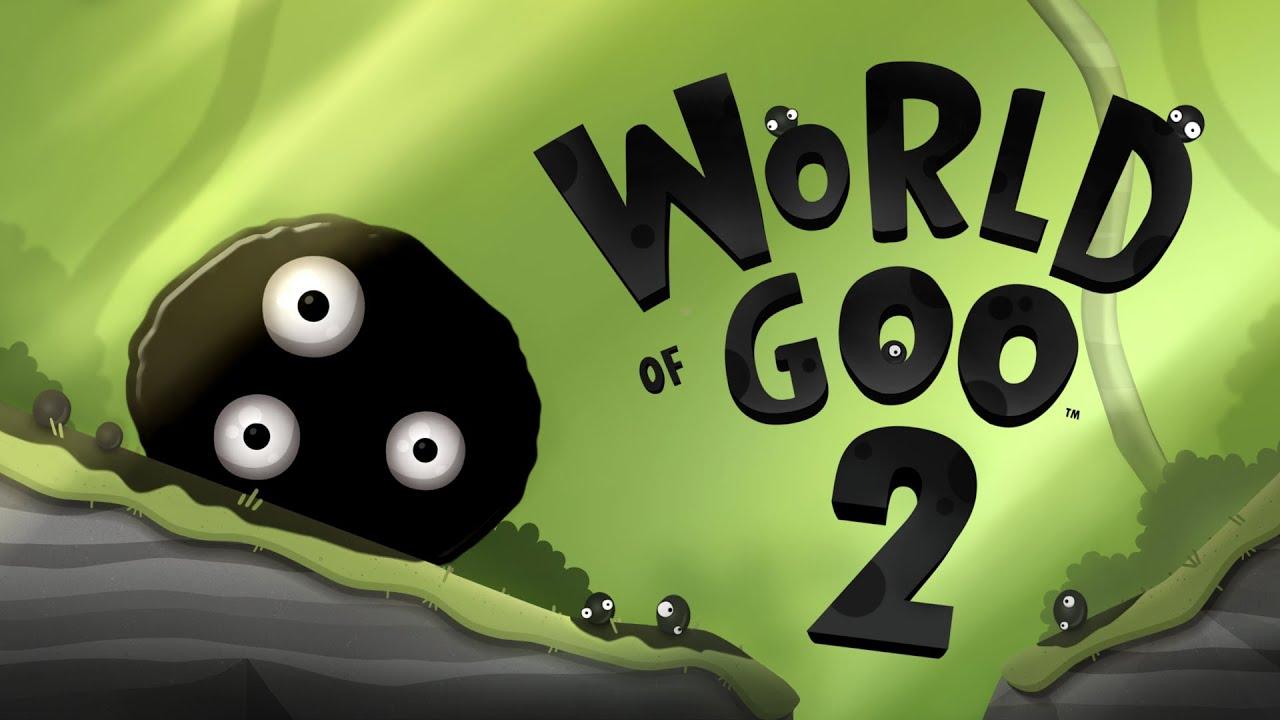
YouTube videos require cookies, you must accept their cookies to view. View cookie preferences.
Direct Link
Direct Link
See more on the official site.
Will you be picking it up?
Some you may have missed, popular articles from the last month:
Before Valve invested in Linux I had to buy consoles to get my gaming fix. After a while I was considering buying one again, native games were slowly declining in number and Wine pre-DXVK was not able to play recent releases. Then Proton arrived, and man, I never looked back.
I bought a Switch for my kids last Xmas and that's the first console I buy I don't play at all. Linux covers all my gaming needs all thanks to Proton, it's such a great piece of software I don't even notice I'm actually running non-native games.
I know I've been hating on John Carmack for saying the future of Linux gaming was Wine, but man, he was absolutely right, and deserves my deepest apologies.
When you come to think of it, dedicated layers of API translations are the most fail-safe and future-proof technical solution possible for gaming when it's got got low overhead, and Valve offered us just that by funding open source projects.
I bought a Switch for my kids last Xmas and that's the first console I buy I don't play at all. Linux covers all my gaming needs all thanks to Proton, it's such a great piece of software I don't even notice I'm actually running non-native games.
I know I've been hating on John Carmack for saying the future of Linux gaming was Wine, but man, he was absolutely right, and deserves my deepest apologies.
When you come to think of it, dedicated layers of API translations are the most fail-safe and future-proof technical solution possible for gaming when it's got got low overhead, and Valve offered us just that by funding open source projects.
1 Likes, Who?
It's hard to answer all users because it takes some time. My opinion about the Linux gaming history is different for a good reason. I think about what was happening on less popular platforms before 2010.
We had many professional operating systems with few commercial games like AIX, HP-UX, Solaris, Irix, Zeta, etc.
Linux x86 was the official winner in the commercial games in 2009 compared to the other Linux architectures. The porting process of popular games to Linux running on computers with processors like PowerPC, Sparc, and Alpha was over.
We had more serious platforms like AmigaOS and MoprhOS that slowly started to have less popular games. Linux users could enjoy playing more games that weren't available for Mac OS X..
It's time to talk about 2009 and 2011.
In 2009, the indie comapnies started to get more active, and we could expect the AAA titles mainly from LGP, or Ryan Gordon. For example, Jack Keane was the popular adventure game. Unfortunately, the pre-orders for the Linux version were probably disappointing for Runesoft, so they stop doing it for few years.
Impressive games wre available for Linux like Penumbra, Savage 2, Oil Rush etc., but from smaller companies. The existing indie companies started to port more games like Anawiki Games, Basilisk Games, Winter Wolves, Tycoon Games, My Game Company. Some of them with the long history like InterAction Studios decided to join.
Desura and Ubuntu Software Center wanted to sell these classic games from LGP, Runesoft, and hundreds of indie games, some from well-known comapanies like MumboJumbo.
In 2009 - 2011, we gradualy start to have regular weekly releases of the indie games for Linux. Unfortunately, many users didn't want to buy mainly the indie games from less popular online stores. They wanted Steam for Linux.
HIB was the success because users didn't have to spend $25 - $40 (+ other costs) for AAA tittles or $20-25 for the indie game. They can get five or more games for few bucks. Of course, Valve noticed it, and you know the rest of the history.
I think Linux getting back to the point when users have less the native AAA titles, and more indie games.
ID software spent a year porting games to Linux and didn't want to lose more money. Quake 3 for Linux was a disaster for them when you think about sales. Id Software released only three Quake games in 1999. The rest of the games were unofficial releases ported by their employees in their spare time. Fans like it, but ID software didn't have any money directly from Linux users after it.
Last edited by gbudny on 24 February 2024 at 12:00 pm UTC
We had many professional operating systems with few commercial games like AIX, HP-UX, Solaris, Irix, Zeta, etc.
Linux x86 was the official winner in the commercial games in 2009 compared to the other Linux architectures. The porting process of popular games to Linux running on computers with processors like PowerPC, Sparc, and Alpha was over.
We had more serious platforms like AmigaOS and MoprhOS that slowly started to have less popular games. Linux users could enjoy playing more games that weren't available for Mac OS X..
It's time to talk about 2009 and 2011.
Quoting: omer666Before Valve invested in Linux I had to buy consoles to get my gaming fix. After a while I was considering buying one again, native games were slowly declining in number and Wine pre-DXVK was not able to play recent releases. Then Proton arrived, and man, I never looked back.
In 2009, the indie comapnies started to get more active, and we could expect the AAA titles mainly from LGP, or Ryan Gordon. For example, Jack Keane was the popular adventure game. Unfortunately, the pre-orders for the Linux version were probably disappointing for Runesoft, so they stop doing it for few years.
Impressive games wre available for Linux like Penumbra, Savage 2, Oil Rush etc., but from smaller companies. The existing indie companies started to port more games like Anawiki Games, Basilisk Games, Winter Wolves, Tycoon Games, My Game Company. Some of them with the long history like InterAction Studios decided to join.
Desura and Ubuntu Software Center wanted to sell these classic games from LGP, Runesoft, and hundreds of indie games, some from well-known comapanies like MumboJumbo.
In 2009 - 2011, we gradualy start to have regular weekly releases of the indie games for Linux. Unfortunately, many users didn't want to buy mainly the indie games from less popular online stores. They wanted Steam for Linux.
HIB was the success because users didn't have to spend $25 - $40 (+ other costs) for AAA tittles or $20-25 for the indie game. They can get five or more games for few bucks. Of course, Valve noticed it, and you know the rest of the history.
I think Linux getting back to the point when users have less the native AAA titles, and more indie games.
Quoting: omer666I know I've been hating on John Carmack for saying the future of Linux gaming was Wine, but man, he was absolutely right, and deserves my deepest apologies.
ID software spent a year porting games to Linux and didn't want to lose more money. Quake 3 for Linux was a disaster for them when you think about sales. Id Software released only three Quake games in 1999. The rest of the games were unofficial releases ported by their employees in their spare time. Fans like it, but ID software didn't have any money directly from Linux users after it.
Last edited by gbudny on 24 February 2024 at 12:00 pm UTC
1 Likes, Who?
Quoting: gbudnyIt's hard to answer all users because it takes some time. My opinion about the Linux gaming history is different for a good reason. I think about what was happening on less popular platforms before 2010.You know that an awful lot of people here, including those you're trying to avoid responding to, were there to witness all of that personally, right?
We have the views we have on Linux gaming history because we saw how things were on less-popular platforms too; GOL has plenty of people who used those before shifting to Linux.
2 Likes, Who?
Quoting: PenglingYou know that an awful lot of people here, including those you're trying to avoid responding to, were there to witness all of that personally, right?
We have the views we have on Linux gaming history because we saw how things were on less-popular platforms too; GOL has plenty of people who used those before shifting to Linux.
I know some people here used Linux before 2010 or earlier. I don't think that is the majority of users on this website. Unfortunately, I have doubts that people know what was released back then because more Linux users knew about ID software, Epic games, and a few other companies. That's it.
You had to use websites like holarse, linuxgames.com, or happypenguin.org to get only some news. Tracking promotions was also almost impossible because you had to use the RSS feeds. You didn't have a store that had no more than 60 titles for Linux on sale. I suspect users share their opinions based on the LGP/Runesoft resellers. The Linux games lists were sometimes the better source of information.
Now you have wishlists and big online stores with games for Linux.
Users cared more about the AAA titles for Windows or the game consoles than indie games for Linux. We have Linux as the gaming platform that has existed for 30 years. The Linux retro community is tiny compared to the other platforms like Amiga or Mac.
Why did Amiga and Mac users know more about the gaming history of their systems?
I know about a few issues with it.
It had something to do with the prices of games, shipping costs, and customs duties. We had a community of Cedega users who also strongly believed it solved all their problems, just like Proton users today. I think it will always be the version of Wine that people think about too seriously.
It's a repetitive process thinking about Linux with the different versions of Wine as the new OS/2. IBM had the source code from Microsoft, and it didn't help.
Let's say that Wine/Proton is the future of Windows games on Linux.
Linux need Microsoft to support Wine to see the radical change in the market. Otherwise, Linux will be in the same position as Mac OS X for many years. I don't know if Microsoft will ever do it.
Why they should do it is the better question.
Can you give me an example of a system, or a game console that achieved success based mainly on games created for their competitors?
I don't care how buggy or unstable are some Linux games because you can see this issue on other operating systems or game consoles. That's the part of the gaming experience on every platform. Users can accept this situation, or reject it.
I think every successful gaming platform needs users who will generate enough money for companies to keep it alive. Linux achieved it with mainly indie games.
Is it enough for everyone?
Last edited by gbudny on 24 February 2024 at 1:39 pm UTC
0 Likes
Quoting: gbudnyI know some people here used Linux before 2010 or earlier. I don't think that is the majority of users on this website.My experience has been that most people I encounter here are in the 40+ bracket like myself, and quite often much older. Obviously I don't know how it breaks down beyond the regulars I often see who make comments that give some clues about demographics, though.
Quoting: gbudnyUnfortunately, I have doubts that people know what was released back then because more Linux users knew about ID software, Epic games, and a few other companies. That's it.Got any citations for what "more Linux users" knew, or is that just anecdotal experience?
Seriously, on every platform, most people are going to know the "big names" - that's not specific to Linux.
Quoting: gbudnyYou had to use websites like holarse, linuxgames.com, or happypenguin.org to get only some news. Tracking promotions was also almost impossible because you had to use the RSS feeds. You didn't have a store that had no more than 60 titles for Linux on sale. I suspect users share their opinions based on the LGP/Runesoft resellers. The Linux games lists were sometimes the better source of information.Yeah, I know.
Now you have wishlists and big online stores with games for Linux.
Here's an interesting one for you from one of the indies who used to sell direct from their site back in the day: http://blog.wolfire.com/2010/05/The-state-of-Mac-and-Linux-gaming
Quoting: gbudnyUsers cared more about the AAA titles for Windows or the game consoles than indie games for Linux. We have Linux as the gaming platform that has existed for 30 years. The Linux retro community is tiny compared to the other platforms like Amiga or Mac.People like what they like. No sane person is going to buy something they don't enjoy just because it's for a particular operating-system - that's not how to get support for what you actually want.
A person who likes genres not represented on a platform won't get them to appear by buying other unrelated things just because those unrelated things are made for a particular OS.
Quoting: gbudnyWhy did Amiga and Mac users know more about the gaming history of their systems?Because they were actually officially pushed as gaming platforms at various points. It's only relatively recently that a major entity started investing in doing the same for Linux.
Quoting: gbudnyI know about a few issues with it.If it solves your issue it does, and if it doesn't it doesn't. It not solving your issue does not invalidate the tool.
It had something to do with the prices of games, shipping costs, and customs duties. We had a community of Cedega users who also strongly believed it solved all their problems, just like Proton users today. I think it will always be the version of Wine that people think about too seriously.
It's a repetitive process thinking about Linux with the different versions of Wine as the new OS/2. IBM had the source code from Microsoft, and it didn't help.
Quoting: gbudnyLet's say that Wine/Proton is the future of Windows games on Linux.Yet again with the Microsoft promotions. Microsoft hasn't done anything, and yet through the efforts of Valve and those they work with we've got a tool that's almost as seamless as Apple's Rosetta. And anyone who used that (so to speak - it was automatic and embedded into the OS at the time) will know how incredibly good Rosetta was, so Proton being close to that is high praise indeed.
Linux need Microsoft to support Wine to see the radical change in the market. Otherwise, Linux will be in the same position as Mac OS X for many years. I don't know if Microsoft will ever do it.
Why they should do it is the better question.
Proton is part of the future of games on Linux. The PC-gaming part of the video games industry pie sits at 22% currently, which is smaller than the 28% console lump, and much smaller than the 50% that mobile telephone/tablet gaming takes up; Linux is an ultra-tiny fraction of that 22% that belongs to the collective of OSes in the PC world - it only recently surpassed MacOS gaming, which has been where it is for decades. Like it or not, tech-adoption is driven by gaming, and Proton has proven itself necessary to smoothly get the numbers to rise.
Quoting: gbudnyCan you give me an example of a system, or a game console that achieved success based mainly on games created for their competitors?The Amstrad CPC. It had similar guts to the Sinclair ZX Spectrum and got a lot of Spectrum ports with slightly prettied-up graphics. Though some complained about this, most people didn't care, and the machine was very successful in both its native Britain and in Germany under the Schneider brand. (Hilariously, later, Amstrad bought Sinclair, and this still kept happening.)
Indeed, we can somewhat expand out from that example and name pretty much all of the 8-bit microcomputers that ruled the roost in the UK and EU throughout the 1980s and well into the mid-1990s, because a large part of their adoption into homes came from conversions of arcade-games that the platforms' creators had no ownership of and which were competing for players' time.
And then there's the Famiclone rabbit-hole, where clones of the Famicom/NES became even more ubiquitous than the real thing!
Quoting: gbudnyI don't care how buggy or unstable are some Linux games because you can see this issue on other operating systems or game consoles. That's the part of the gaming experience on every platform. Users can accept this situation, or reject it.It's really not a part of the gaming experience on every platform, and especially not on Linux. I think it's fair to say that a hell of a lot of us here value Linux for its stability, and that extends to gaming on the OS.
I literally never encounter instability with anything I play on Linux, be that native, run via Proton, or emulated. Of course, it's your choice what you do for fun, but why would you choose to subject yourself to bugginess and instability during your leisure-time?
Quoting: gbudnyI think every successful gaming platform needs users who will generate enough money for companies to keep it alive. Linux achieved it with mainly indie games.To do that, we need much higher numbers of people who game on the platform. Telling people "Switch to Linux, lose access to all of your games, only play buggy broken old stuff!" is a dreadful idea considering that gaming drives the adoption of technology.
Is it enough for everyone?
Last edited by Pengling on 25 February 2024 at 3:44 am UTC
0 Likes
If anyone knows anyone at Valve, we should really look into a competitor program to Epic's Free Money. I'd imagine a small quantity of cash and some cushy Steam treatment, in exchange for "no other storefronts" and maybe "supports Win+Mac+Lin, gets Deck Verified" would do some Real Good Stuff for the Linux world.
0 Likes
Quoting: Forgewe should really look into a competitor program to Epic's Free Money
I get where this comes from, but I disagree. Fighting exclusivity with exclusivity would make the PC gaming landscape worse. I don't just want games on Steam, I want zero paid third-party exclusivity (and that includes on consoles, hence why I don't buy from Sony).
I think Valve should stay out of the exclusivity game. Attract develoopers by having a good platform and showing that the Epic Free Money hurts in the long-term.
If Valve start buying exclusivity, they're no better than scumbags like Epic, Tomorrow Corporation (I say this with a Little Inferno profile pic, and an ex-fan of Tomorrow Corporation), and every other dev that buys into paid third-party exclusivity.
Last edited by sonic2kk on 3 March 2024 at 6:31 pm UTC
1 Likes, Who?
Quoting: sonic2kkIf Valve start buying exclusivity, they're no better than scumbags like Epic, Tomorrow Corporation (I say this with a Little Inferno profile pic, and an ex-fan of Tomorrow Corporation), and every other dev that buys into paid third-party exclusivity.I completely agree with the bit about Valve not having to buy exclusives, but calling Tomorrow Corporation names when you can buy the native Linux build DRM free from their website IMHO may be a little overreacting, don't you think?
2 Likes, Who?
Quoting: PenglingLate, but I'm uh, quite a bit younger than that. Which is why I find it interesting to ask users like Purple Library Guy about history, because I wasn't there for most of it.Quoting: gbudnyI know some people here used Linux before 2010 or earlier. I don't think that is the majority of users on this website.My experience has been that most people I encounter here are in the 40+ bracket like myself, and quite often much older. Obviously I don't know how it breaks down beyond the regulars I often see who make comments that give some clues about demographics, though.
3 Likes, Who?
Quoting: pleasereadthemanualLate, but I'm uh, quite a bit younger than that. Which is why I find it interesting to ask users like Purple Library Guy about history, because I wasn't there for most of it.
Glad to hear that, I got the impression that Linux desktop is nearly exclusive to us old far...
1 Likes, Who?
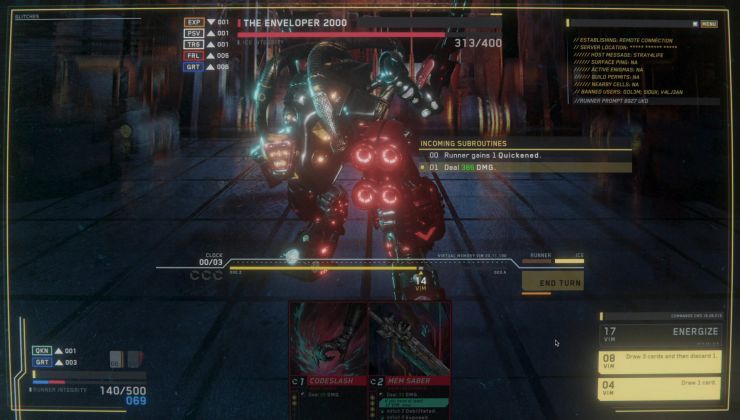
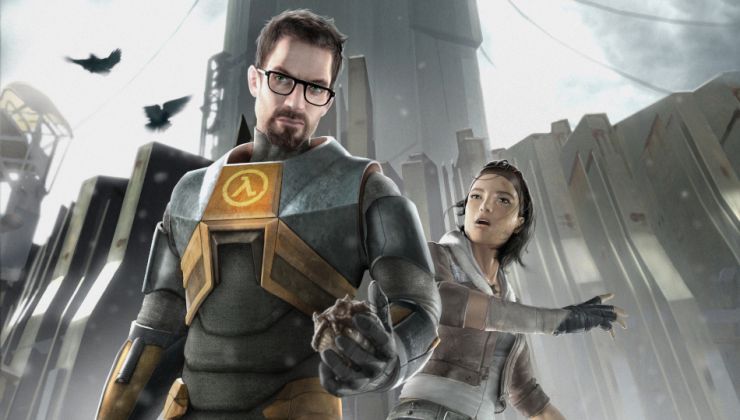
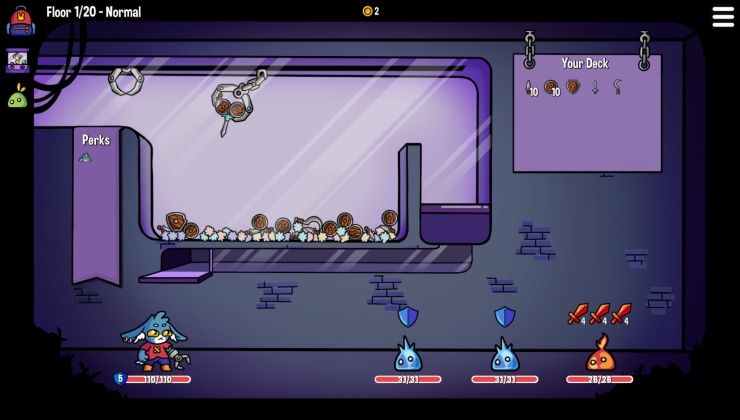
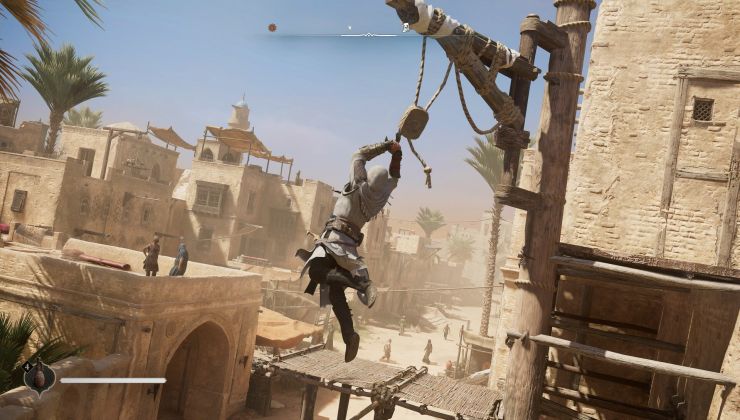




See more from me